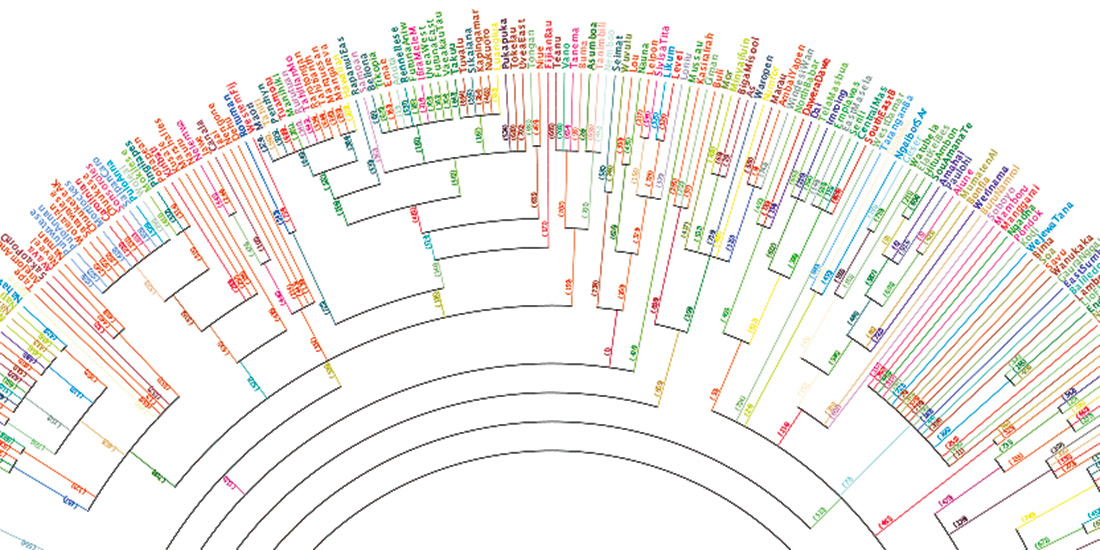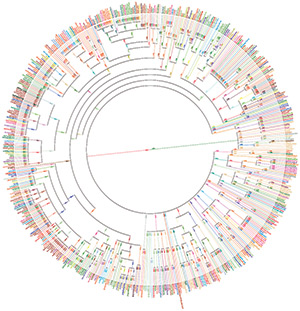
Say what?

Proto-Austonesian language wheel
Is language the key to understanding ancient civilizations? For linguists, reconstructing protolanguages — the ancestral languages from which modern languages evolved — is critical to learning more about human history. Until now, this has entailed a painstaking process that takes years to complete. But a Berkeley research team has created a computer program that can rebuild protolanguages in a matter of days or even hours. The model was created by computer science professor Dan Klein, psychology professor Thomas Griffiths and computer science graduate student David Hall, along with Alexandre Bouchard-Côté of the University of British Columbia. Their system, drawing from a database of over 600 languages currently spoken in Asia and the Pacific, successfully reconstructed the ancestral Proto-Austronesian language, with an estimated 85 percent accuracy rate. The researchers anticipate that their program will not only help linguists comprehend and preserve ancient languages, but also predict how current languages might change in the future.
